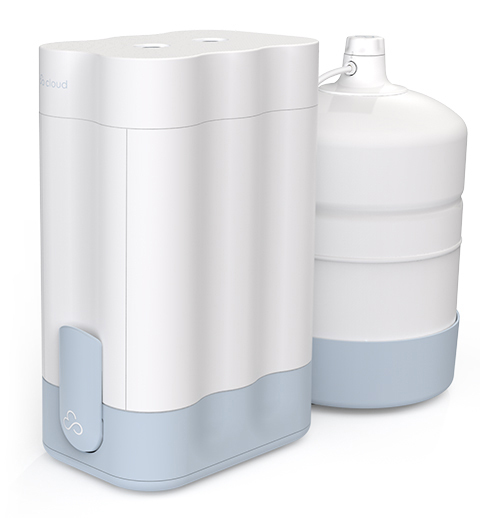Why You Should Never Drink Unfiltered Tap Water
So, are expensive water filters really worth it?
It’s an unfortunate fact, but drinking unfiltered tap water can be a major health risk for most of the country.
It is always possible that dangerous chemicals, pesticides, hormones, and other pollutants are lurking in your tap.
In spite of the fact that the Environmental Protection Agency (EPA) has established drinking water regulations, millions of people are exposed to water that does not meet these standards.
Every year, thousands of people are exposed to polluted water as a result of damaged distribution pipes.
It is impossible to establish whether or not your tap water is toxic unless you get it professionally tested.
Luckily, filters can remove up to 99.9% of pollutants from your tap water.
Bottled Water vs. Expensive Water Filters: A Cost Comparison
Drink 8 glasses (64 ounces) of water a day they say...
For a household of four, that adds up to about two gallons per day.
So what’s more affordable, drinking bottled water or using an at-home water filter?
Bottled Water Annual Costs for a Family of Four:
Let’s say you pay $6 per case of water, or $0.40 per bottle...
For a family of four drinking 5 to 6 bottles a day, that adds up to an annual cost of $3,114.67
Expensive Water Filter Annual Costs for a Family of Four:
The most basic water pitcher filters cost about $20, plus about $120 a year to replace filtration cartridges.
That puts your yearly cost of drinking water at well under $300, meaning your family saves at least $2,800 per year.
Why Is Bottled Water So Popular?
Despite its high price, bottled water is still wildly popular.
After all, it’s convenient and easy to grab when you’re on-the-go.
But that’s only half of the reason why bottled water is so popular...
The real reason is the widespread negative impression that most Americans have about tap water quality in the United States.
Although it’s true that the U.S. has a lot of water contamination issues to deal with, the good news is that by installing a high-end water filter in your home, you can solve all of those issues yourself.
Your drinking water will be clean, pristine, and free of up to 99.9% of harmful contaminants, even difficult-to-remove ones like lead and arsenic.
Let's take a look at some of the most common water filtering techniques:
- Reverse osmosis (RO) systems: Removes 99.9% of contaminants and pathogenic microorganisms, soften “hard” water, balance pH and remineralize water with essential electrolytes
- Ultrafiltration (UF) systems: Removes a large percentage of dangerous contaminants and bacteria, but cannot remove dissolved particles, “hard” minerals or fluoride
- Ultraviolet (UV) systems: Kills 99.9% of pathogenic microorganisms. They are usually combined with carbon filtration to remove chlorine, chloramine, trace heavy metals and several other contaminants
- Activated carbon filters: Removes chlorine, chloramine, trace heavy metals and several other contaminants
Most refrigerators, faucets, and pitcher filtration systems use activated carbon filters, but as you can see they can’t protect you from everything.
UV light can kill bacteria, viruses, and other dangerous microscopic organisms, but it won’t do a darn thing about heavy metals or radioactive material.
RO systems, however, have you covered on all fronts, plus they’re the most durable and effective for home use.
The decision to get a filter is about much more than just saving money --- a high-quality filter ensures that you and your family are drinking clean, safe water every day.
And for as little as $25 per month for a family of four, it’s a no-brainer.
Cloud Water Filters feature built-in software that syncs to your phone so that you can monitor your water quality 24/7.
It even tracks usage and automatically ships replacement filters right to your door.
Click here to learn more.

